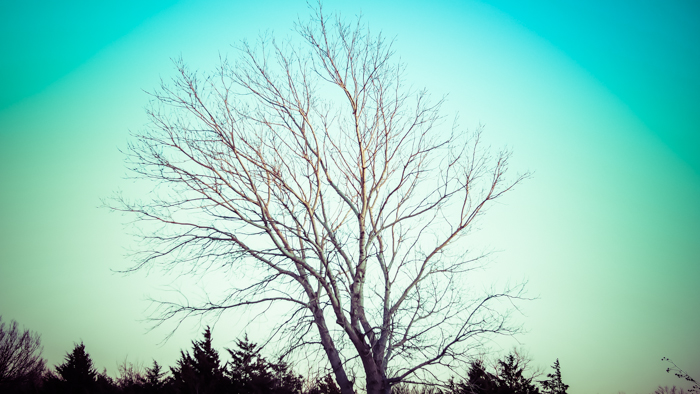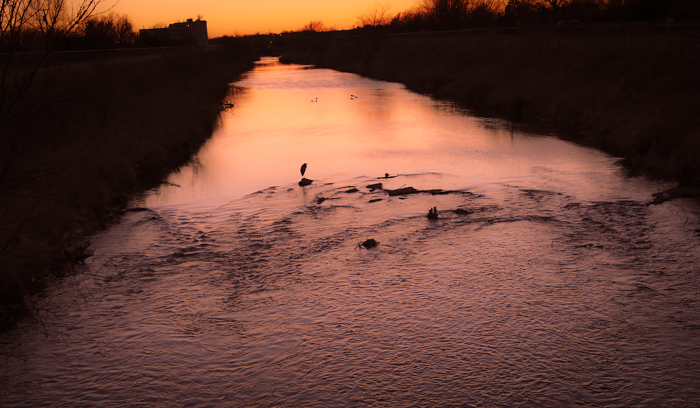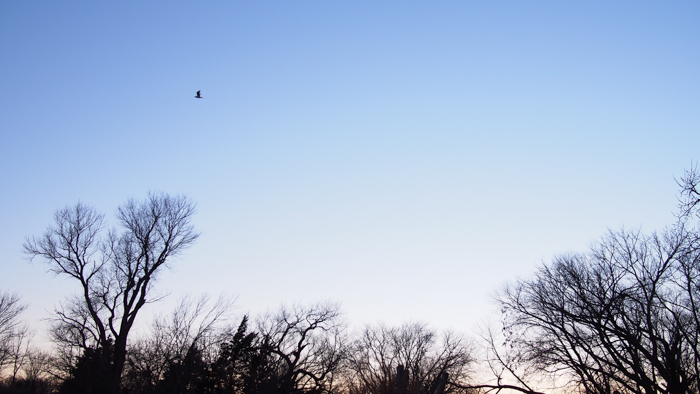I started this series, Beyond the Commonplace, as a way to cultivate poetic sight: to see the extraordinary in, beyond, or through the ordinary. N. Scott Momaday describes the poet's job as one-part seer and one-part tour guide: "The poet says, here, let me show you something. That is, let me help you to see something as you have not seen it before.” Photography and poetry are "varieties of one stimulus" (Hebbel) and even on mundane excursions, I use my camera lens to call forth a clearer vision of the world around me. I think of the great poet Milton and the brilliant writer Jorges Luis Borges, both blind, yet artists who taught many to see the world in brighter hues. For me, this means that even on ordinary runs or walks, when I think I am surrounded on all sides by the prosaic -no enraptured sunsets nor dramatic wintry landscapes, simply the unremarkable terrain of a field or a bland, cloudless sky- I willfully exert the eye of an artist: What would Monet see in this field? Van Gogh? Would Ansel Adams see something I am incapable of seeing? How would Willa Cather paint-by-words this familiar landscape? In his Letters to a Young Poet, Rilke admonished, "If your everyday life appears to be unworthy subject matter, do not complain to life. Complain to yourself. Lament that you are not poet enough to call up its wealth."

Lake Hefner challenges my artistic vision of the world. It is a man-made lake, hemmed in on three sides by concrete and, on most days, to see something ineffable in Lake Hefner is to exert the furthest stretch of the imagination. Yet, in an instant, there it was, before me, the scattered shot of birds to the sky, the sunset behind me reflecting off of their wings as they danced above the land-encroached sparkle of water.
Nothing extraordinary: Naked trees in winter, they are as ubiquitous as yellow grass, but I can't help ask what would Picasso see? Would he paint the limbs as brash protrusions invading the sky? Would Van Gogh, who turned ordinary haystacks into works of art worth millions, think this lowly and common, unworthy of our attention? I have always loved trees in winter, perhaps it is because they offer an uninterrupted view of the horizon or, maybe, deep in my subconscious, I translate trees in winter as the epitome of hope.
The evening I took this shot, I was disappointed. I was not artistic enough to call forth the beauty surrounding me. Discouraged, I was calling it a day when, suddenly, the ugliest waterway became as splendid as the canals of France. Yes, I was aided by the closing day, which, in the magic hour is akin to cheating, but it was refreshing, this moment. In daylight, the concrete jungle in this area stifles any shred of symmetry and elegance but, again, I lift my camera to limit the periphery of my vision and to concentrate on what lies before me.
Soundtracking: Winter Run




